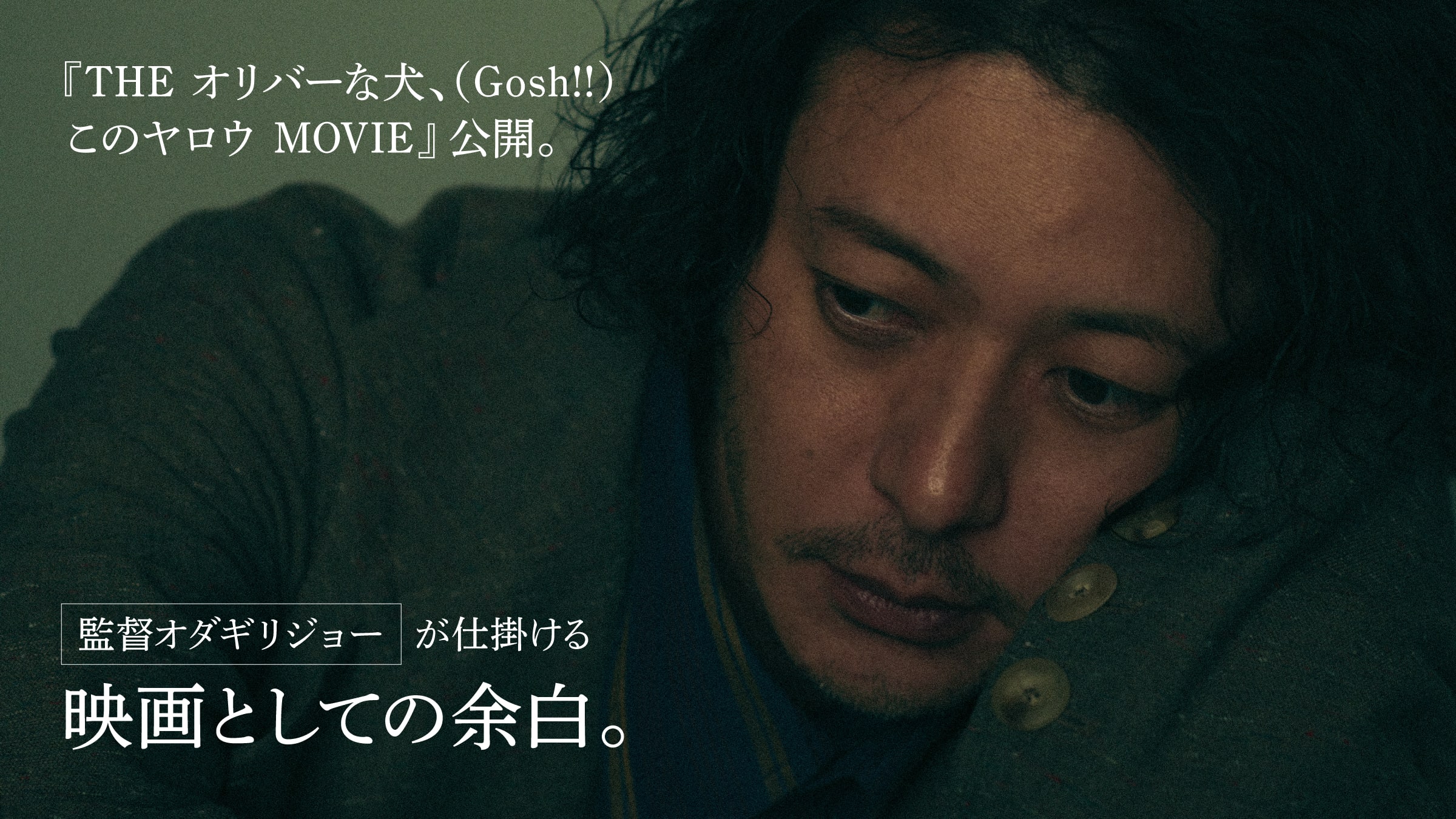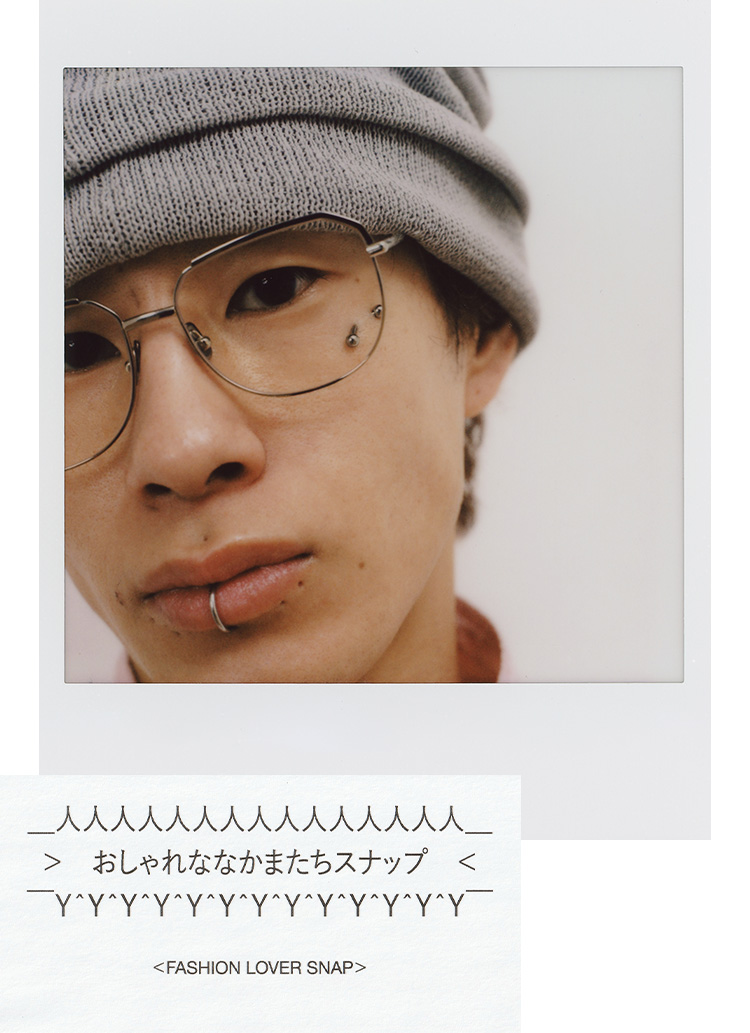Ippei Aoba (Sousuke Ikematsu) is a handler in the Police Dog Section of the Narrow Narrow Narrow Prefectural Police's Forensics Division. Ippei's partner, Oliver, a police dog, looks like an excellent police dog to everyone except Ippei, but for some reason Ippei sees him as an old man (Odagiri Joe) in a dog costume who is covered in lust and loves drinking, smoking and women. One day, Yayoi Hagoromo (Eri Fukatsu), a charismatic handler from the neighboring Kisaragi prefecture, asks Ippei and Oliver for their cooperation in the investigation. They are told that Mr. Konishi (Koichi Sato), known as a super volunteer who has found missing persons one after another, has gone missing. Based on an eyewitness report that he saw Mr. Konishi disappear into the sea, Ippei, Oliver, and Hagoromo head for the seaside hotel where Mr. Konishi's wheeled cart was left. ......
PROFILE
Born February 16, 1976 in Okayama, Japan. He studied method acting in Japan and the U.S., and played his first leading role in a film in "Acalui Mirai" (2003). Since then, he has been featured in numerous films, including "Blood and Bones" (2005), "Yureru" (2006), and "Tokyo Tower: My Secret Life and Sometimes Dad" (2007), winning numerous domestic and international awards, including the Japan Academy Prize and the Blue Ribbon Award. He is also trusted by international filmmakers and has appeared in "Yoi Shinju" (2019, Jenny Shun/Christopher Doyle), "Saturday Fiction" (2019, Low Ye), and "Human, Space, Time, and Man" (2020, Kim Ki-Dogu), among others. He also wrote, directed, and starred in the eighth episode of the TV Asahi drama series "The Duration Police Who Came Back" (2007). His first feature film, "The Story of a Boatman" (2019), was selected for the Venice International Film Festival that year and received worldwide acclaim. 2021, he began writing, directing, acting, and editing the NHK drama "Oliver the Dog, (Gosh! ) This Yarrow" for two seasons, leading up to the release of the film version of the series. He is currently working on a feature film version of "My Brother in Portable Size" (scheduled to be released on November 28, 2025, directed by Ryota Nakano).
I don't want to make a film that leaves nothing after two hours of viewing.
I saw the film the other day and after watching it, I kept thinking, "What was the meaning of that scene? It left a strong aftertaste as a movie.
Odagiri: As you say, this is not the type of film that gives easy answers. Rather, I think it is a free film that can be interpreted a little differently by each viewer. You may not get the whole story just by watching it once, but if you watch it again, you will see that this part is actually connected to this part, or that this scene was a frisson to that part! or "This scene was just a pretext for that scene! If you watch the film again, you will discover that this scene is actually connected to this scene, or that this scene was a pretense for that scene. I believe that the true meaning of this work will be conveyed to the audience if they enjoy what they don't understand, rather than assuming that "not understanding something is boring". It would be great if each viewer could take the film as they wish and complete the film in their own way.

I see. I was also curious about the difference between TV dramas and movies. Did you have more freedom in the film version?
Odagiri: In terms of freedom, that is certainly true. Television production is limited to what can be done within the production budget received from sponsors, and there are certain restrictions. On the other hand, films are made by a production committee and the production budget is set by the committee, so there may be more leeway than with TV dramas. In terms of scriptwriting, TV dramas have a clearly defined time frame, and not a single second is allowed to exceed that time frame. In addition, it is necessary to make a pull that raises expectations for the next week, and there are certain words that can be used in the script in a compliant manner. On the other hand, films do not have that many rules, so you can say that they have a high degree of freedom.
The high degree of freedom also means that it is easier to raise issues, doesn't it? For example, the high degree of freedom in film may inversely support the many restrictions in television.
Odagiri: That being said, though, there are, of course, problems with film. Every world has its good points and bad points, and television also has its good points. The rules of television that I mentioned earlier are certainly constrictive. For example, no matter what kind of violent murderer you are, you have to wear a seat belt when you get into a car (smiles). (Laughs.) However, it makes me want to explore creativity that takes advantage of these restrictions. On the other hand, because films are free, I think there is an underlying difficulty in being unsure of what to do. There are countless films being made in this world, and what should we do to create a work that has the strength to compete among them? I have to have a sense of inevitability even in the vaguest of ways. I did not want to make a film that would leave nothing after two hours of viewing. I always wanted to make a work that would leave a strong impression on both the filmmaker and the audience.
I don't intend to make films in the future.

The light and comical tone of your work was also impressive. Laughter is an element that is difficult to moderate, as too much of it can become laughable at the drop of a hat.
Odagiri: When we launched this work as a TV series, the world was still in the midst of the Corona disaster, and we wanted to create a silly comedy that would allow people to forget, even for a moment, the pain of reality. But as you say, it is really difficult to find the right amount of laughter. To be honest, I feel it is much more difficult than making people cry. If you show any excessive direction that says, "Please laugh here," you can't laugh, can you? I didn't want to make the audience laugh, and I thought the balance between the two would lead to the appearance of the work, so I don't seek laughter, but rather take the stance that either laughing or not laughing is fine.
One of the highlights of the film was that there were many surprises in a good way. I was surprised in a good way. Are there any scenes in which you felt you had to be a bit reckless as a director?
Odagiri: I think it was hard work for each of you. For example, the dance scene at the dog café took two to three months of rehearsals, and the actual performance was shot in about two or three days. But I imagine the point of your question is to make veteran actors such as Takeshi Kaga and Koichi Sato take the plunge, isn't it?
I was imagining that very thing as I asked the question.
Odagiri: People around veteran actors are too discerning and often assume that they cannot be asked to do such things. The more experienced they become, the more they are offered only solid roles, and the fewer they are offered roles with a sense of fun. But as a fellow actor, I can understand that feeling of loneliness. As an actor, I am sure that you would like to challenge yourself more freely and do interesting things. That is why when I call on them for "free and challenging" works like this, they are genuinely happy and I can tell that they enjoy playing these roles.
I see that this is a scene that could only happen in the same industry. Did you see a different view from when you were an actor, now that you are in the position of creating a film as a director?
Odagiri:
I think it is a big challenge for me to see how this film will be received in this day and age. For example, "On the Summer Sands," which I produced, and "A Boatman's Story," which was my first feature film as a director, were not big hits at the box office. However, I have been able to fulfill my desire to make quality films that I can proudly show to the world. In fact, it received various awards in various countries. What constitutes success depends on each person's sense of values, but if it is measured only by domestic attendance, what I am doing would not be called a success. If you measure success only by domestic attendance, then what you are doing would not be called a success.
I think it is still my experience as a director and producer that makes me think about such things. If you are only participating as an actor, you don't have to worry so much about the box-office success or failure of the film, and you only have to be responsible for your own performance. But when you become a director or producer, you are responsible for the entire film. As a result, if this "Oliver's Dog" ends up with a big deficit, of course I don't think there will be another one. As a person who bears responsibility, I have no intention of making another film at this time.
I hope that the results of the event, regardless of the box-office results, will be received with a kind of concentration of each person's voice, to see how much it stuck with them.
Odagiri: Yes, it is. I think a movie is a personal experience. What you feel when you see a film in the theater is unique, and it is not something that we can measure. However, I think that immersing people in a space where they are not disturbed by anything is a unique experience, and for some people, it can have a life-changing impact on their lives. Box-office numbers are important, but what each and every person who sees the film feels...I think that is what is important. My work ends with the production of the film. After the release of the film, I would like to leave everything to the audience.










